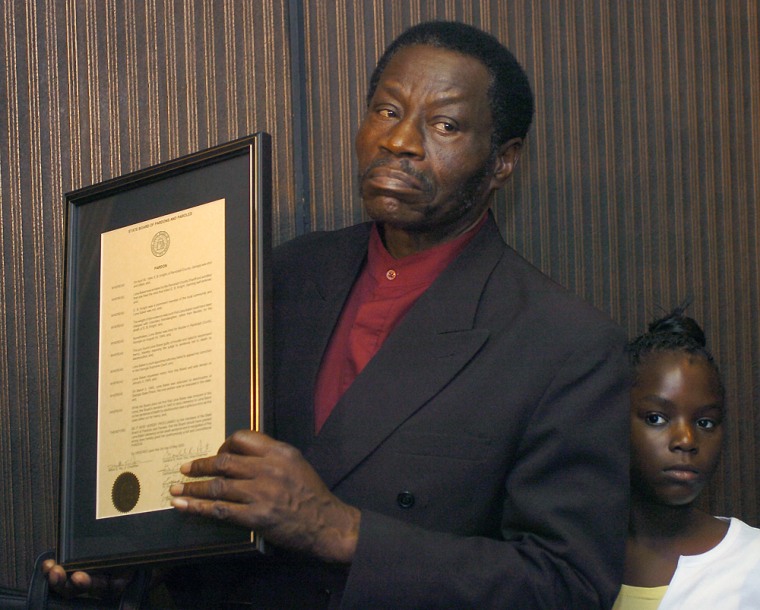Six decades after she was executed for killing a white man in the Jim Crow South, a black maid was granted a full and unconditional pardon Tuesday.
Lena Baker, 44, the only woman put to death in Georgia’s electric chair, had maintained until she was put to death in 1945 that she shot E.B. Knight in self-defense.
Members of the Georgia Board of Pardons and Paroles read a proclamation saying the board’s refusal to grant clemency before the execution was “a grievous error, as this case called out for mercy.”
Members of Baker’s family expressed gratitude for those who worked toward clearing her.
“This was not a white or black issue; it was an issue of right or wrong,” said Charles McElveen, Baker’s great-great-nephew.
Cuthbert District Attorney Charles Ferguson has said if Baker was charged for the same crime today, the case would not have even met the requirements for capital punishment.
It was only the third posthumous pardon granted in the agency’s 62-year history.
During her trial, Baker testified that the 67-year-old Knight, a man she had been hired to care for, held her against her will and threatened to shoot her if she tried to leave. She said she grabbed Knight’s gun and shot him when he raised a metal bar to strike her.
Because the all-white, all-male jury did not recommend mercy, the sentence of death by electrocution was required by state law at the time. Baker was executed on March 5, 1945, at Georgia State Prison in Reidsville.
‘Racism still plays a part’
The case should be regarded as more than a wrong from a bygone era, said John Cole Vodicka, who worked to spearhead the pardon effort along with Roosevelt Curry, a great-nephew of Baker.
“There are still a lot of racial overtones in what goes on in the legal system today,” said Vodicka, director of the Prison and Jail Project, a civil rights organization based in Americus, Ga. “We still have a system that is not foolproof, where racism still plays a part.”
State Rep. Tyrone Brooks congratulated the family and activists and praised the state for “recognizing its sins.”
“I see a reawakening of elected and appointed officials to recognize the injustices of the past,” Brooks said. “We have a responsibility to correct those wrongs as much we can.”
McElveen urged others to let Baker be an example to people living with the evils from segregation to come forward to right the wrongs of the past.
“Tell your story,” he said. “Don’t go to your grave scared.”
